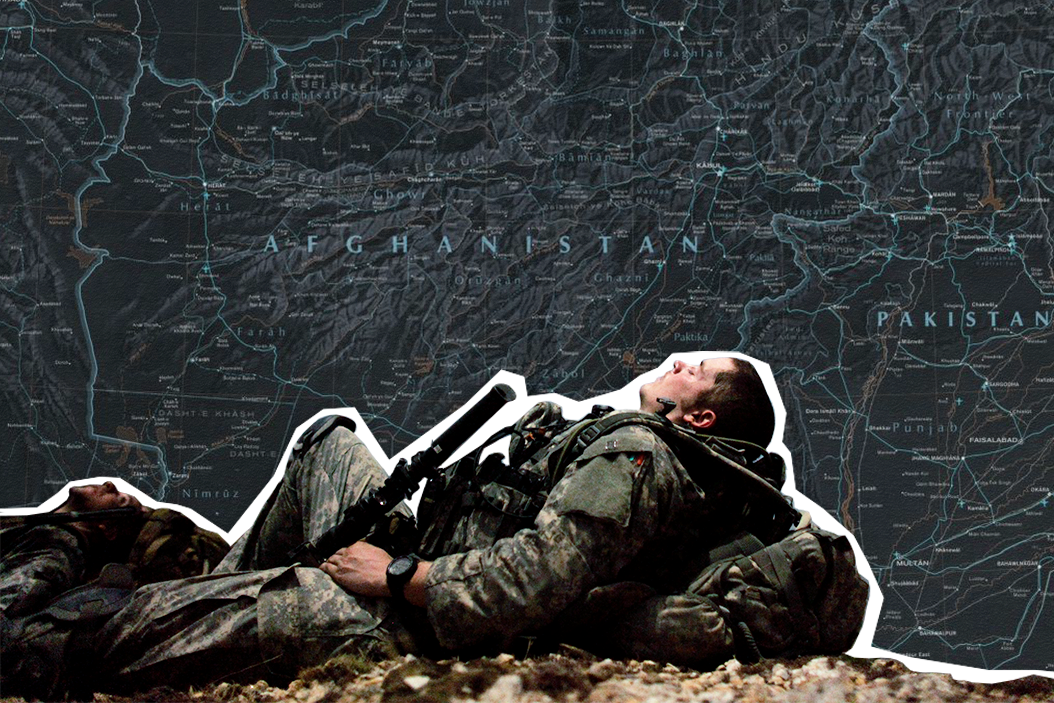October 21, 2020
Following the terrorist attacks of September 11, 2001, US President George W. Bush demanded that Afghanistan's Taliban government surrender Osama bin Laden and end support for al-Qaeda. The Taliban refused.
On October 7, US bombs began falling on Taliban forces. NATO allies quickly pledged support for the US, and US boots hit the ground in Afghanistan two weeks later.
Thus began a war, now the longest in US history, that has killed more than 3,500 coalition soldiers and 110,000 Afghans. It has cost the American taxpayer nearly $3 trillion. US allies have also made human and material sacrifices.
Though the Taliban government quickly crumbled, its fighters kept fighting. A Taliban insurgency continues, and its forces are now believed to control nearly 20 percent of Afghan territory. Almost half of Afghan land is "contested."
The Taliban is militarily stronger today than at any time since the start of the war, and there are now US soldiers serving in Afghanistan who were not yet born on September 11, 2001.
The dilemma remains
A large-scale US effort to defeat the Taliban everywhere in Afghanistan would prove costlier than the American public, and therefore any US president, is willing to bear.
- The US-backed Afghan government still depends on coalition troops and US air support to keep the Taliban at bay.
- All sides know that US and NATO forces will leave one day.
- Washington can extract promises from the Taliban, but not much else. Once US-led coalition forces leave, there will be nothing to prevent a civil war that kills many innocent people, because there is no consensus within Afghanistan today on how the country should be governed, and none of the warring factions will have an incentive to lay down their weapons.
- And if the Taliban emerges from a new civil war victorious, there's little to prevent its leaders from again sheltering terrorists.
There is a plan to end the war. Taliban leaders signed a deal with coalition forces in February 2020 that committed them to halt attacks on coalition forces and Afghan civilians, and to cut all ties with terrorist groups. In return, the US and NATO promised to remove the last of their troops by May 2021.
Taliban forces have not killed an American soldier since then, but its troops continue to carry out attacks on Afghan cities and towns to try to extend their control of territory. Direct Taliban negotiations with the Afghan government have shown progress but no concrete results.
To leave in seven months, US forces will have to accelerate the pace of packing up. That's a signal for the Taliban that they are free to seize more ground, bolstering their bargaining power and giving them new incentives to wait the Americans out.
When foreign troops leave, Afghanistan is probably headed for civil war. That's what happened when Mikhail Gorbachev withdrew Soviet troops in 1989. The bloodbath is likely to be repeated, because there are still many well-armed factions in Afghanistan, and because Pakistan, India, Russia, Iran and other outside powers will back their own proxies. None of these countries wants a vacuum of power in Afghanistan.
Lessons? The Taliban enabled the deadliest foreign attack on US soil in more than 200 years, and the 2001 invasion of Afghanistan enjoyed overwhelming US public support. Osama bin Laden was killed in May 2011, and al-Qaeda is no longer a single coherent fighting force.
A poll taken last month found that two-thirds of Americans supported President Trump's February 2020 deal with the Taliban to end the war. Fewer than 10 percent oppose the idea. But the war hasn't prevented the likelihood of large-scale bloodshed inside that country, and Afghanistan may again become a haven for well-organized terrorists.
So, what lessons should future US leaders draw from the American experience in Afghanistan?
From Your Site Articles
- "Next 9/11 is on Biden’s watch”: Rep. Mike Waltz on US leaving Afghanistan - GZERO Media ›
- Afghanistan’s next generation: a student shares her perspective on the US withdrawal - GZERO Media ›
- The Graphic Truth: Whose troops are still in Afghanistan? - GZERO Media ›
- Has the Taliban changed since the 1990’s? - GZERO Media ›
More For You
Most Popular
Our sharing success program reflects BofA’s commitment to teammates and driving economic opportunity for employees and communities. The Proof: Since 2017, our program has awarded nearly $6.8B to employees—recognizing their contributions and investing in their future. Learn more.
WATCH THE REPLAY: At this year's World Economic Forum in Davos, Switzerland, our Global Stage panel discussion will examine the growing infrastructure around AI, how countries are tackling AI adoption, and the ways in which local and supranational industries might benefit from this rapidly accelerating technology. Watch at gzeromedia.com/globalstage
© 2025 GZERO Media. All Rights Reserved | A Eurasia Group media company.
